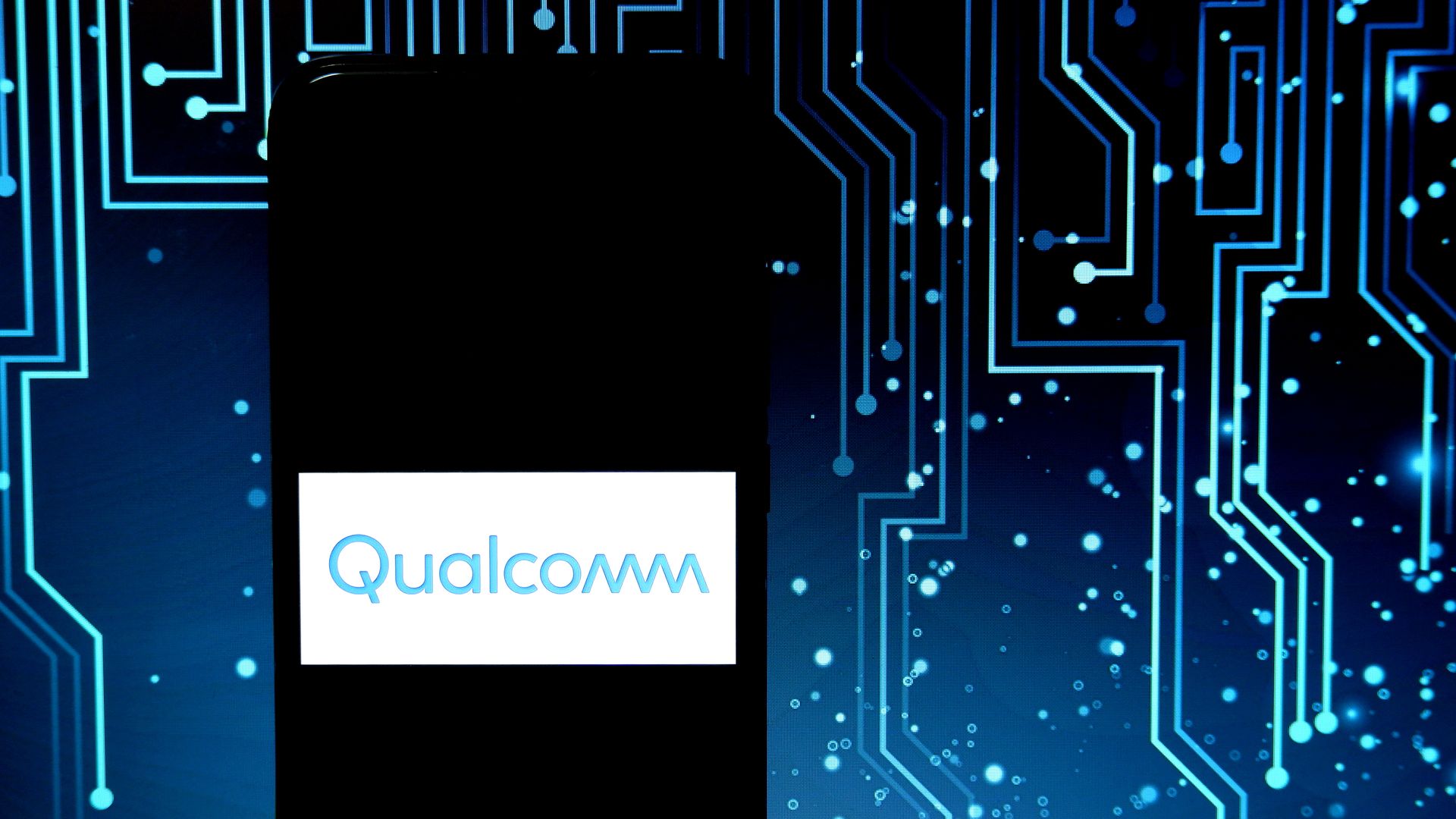Court: Qualcomm's "no license, no chips" policy isn't anticompetitive
Add Axios as your preferred source to
see more of our stories on Google.

Photo illustration: Avishek Das/SOPA Images/LightRocket via Getty Images
Qualcomm isn't harming competition when it forces device makers to license its technology in order to use its chips, a federal appeals court ruled Tuesday.
Why it matters: The decision, which comes from a three-judge panel in California's Ninth Circuit, tosses out a 2019 district court ruling that cast uncertainty around Qualcomm's business model and therefore the future of the smartphone industry.
Catch up quick: Qualcomm has long used the practice, commonly known as its "no license, no chips" policy, to lock smartphone makers into paying for patent licensing before they can use Qualcomm chips.
- The Federal Trade Commission in the waning days of the Obama administration sued Qualcomm over the practice, saying it hurt competition and amounted to an abuse of the firm's market power in the smartphone chip industry. That set in motion the court case leading to Tuesday's ruling.
- The policy was also at the heart of a years-long legal battle between Qualcomm and Apple that the companies settled last year.
What they're saying: "Anticompetitive behavior is illegal under federal antitrust law. Hypercompetitive behavior is not," said Judge Conseulo Callahan, writing for the panel.
"Our job is not to condone or punish Qualcomm for its success, but rather to assess whether the FTC has met its burden under the rule of reason to show that Qualcomm’s practices have crossed the line to 'conduct which unfairly tends to destroy competition itself.' ... We conclude that the FTC has not met its burden."— Judge Callahan
- "The Court of Appeals unanimous reversal, entirely vacating the District Court decision, validates our business model and patent licensing program," Qualcomm general counsel Don Rosenberg said in a statement.
Qualcomm shares rose roughly 5% on the news.
What's next: Should it choose to pursue the case further, the FTC could ask the full Ninth Circuit to review the panel decision. It could also seek to take it all the way to the Supreme Court.
- "The court’s ruling is disappointing and we will be considering our options," FTC Bureau of Competition director Ian Conner said in a statement.
